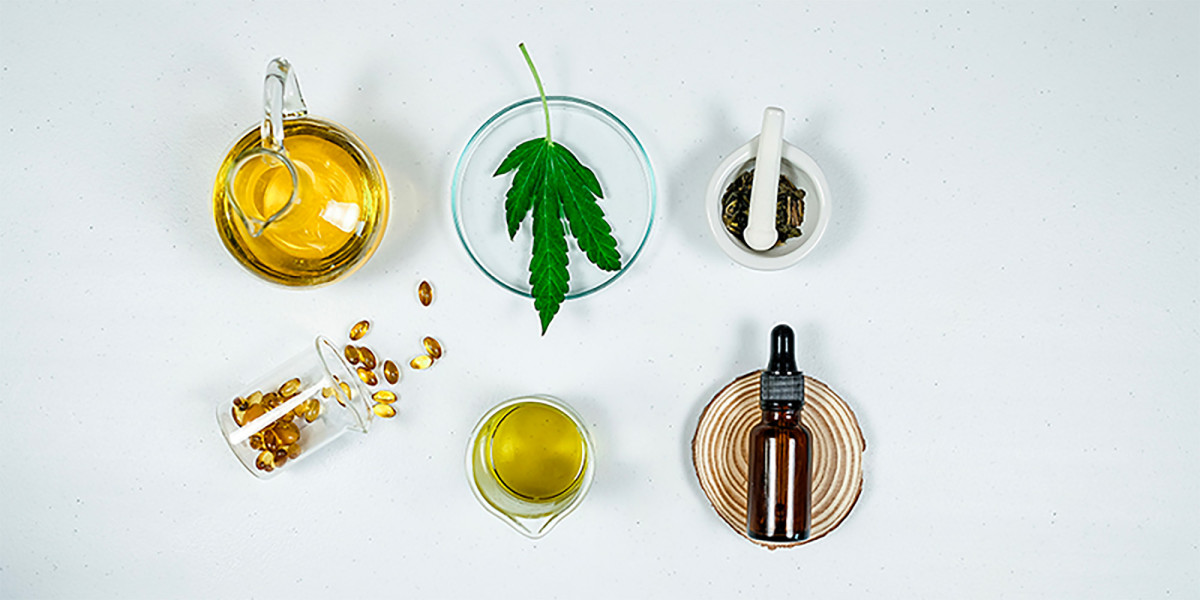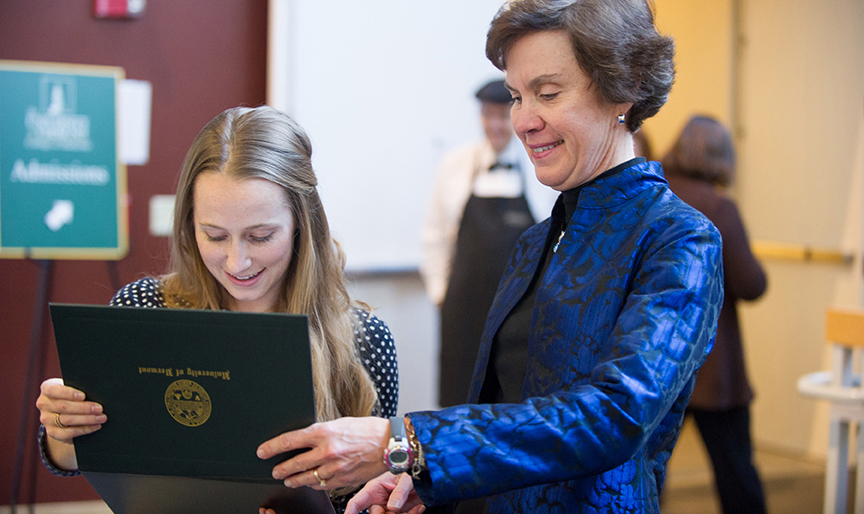Christina Supino’s family doctor in New Hampshire inspired her to pursue a career in medicine. The positive relationships he developed with patients made such an impression on Christina that she later decided to work for him as an intern.
“That’s when I knew medicine was for me,” she says. Christina received a bachelor’s degree in environmental studies and Italian from Dartmouth—where she was also a track and field athlete—and went on to earn a master of public health from University of South Carolina. She eventually came to UVM to complete the Post-Baccalaureate Premedical Program, and is now in her first year at the University of New England College of Osteopathic Medicine. She hopes to eventually work in Emergency Medicine.
We talked to Christina about gaining experience in patient care, developing a water purification center in Africa, and her medical school scholarship with the U.S. Air Force.
Can you tell us a little more about how you became interested in medicine?
Our family friend who is our family doctor really made an impact on my life. My parents were his first clients when he opened up his own practice. They liked him so much that they brought the rest of our very large Italian family to him, and now everyone goes to him. Going to the doctor’s office didn’t feel like a chore, and we actually really enjoyed it. Even my grandmother would always bring him her homemade Italian food. I was really impressed at how he was able to maintain this kind of relationship with almost all of his patients and also provide them with a very important service to maintain their health.
Tell Us About Your Fellowship in Africa.
I did a fellowship with Saha Global in Ghana, Africa, after I finished my master of public health in South Carolina, and it was really an incredible experience. We worked in a small village for a month and helped construct a culturally appropriate water purification center. We taught the women in the village how to run it since women are the traditional water gatherers in those communities. It was my first time in Africa and really gave me a better perspective on life. I remember finishing each of the long hot days by racing the kids in the village down the road. No matter how tired or exhausted I was, I always made sure to do that because even though we couldn’t understand each other in terms of language, it was something we could still share with each other.
While in the UVM Post-Bac Program, What Kind of Work Experience Did You Receive?
I worked at Home Instead Senior Care doing patient care-centered work. I picked up shifts with numerous people over the year and half I was there and fulfilled vastly different needs. I also worked as a personal care attendant for two private clients as well. I felt that these experiences helped diversify my skills to fit the needs of different patients. I would help with daily activities such as getting up, dressing, bathing, using the bathroom, preparing meals, transportation to and from grocery stores or doctor appointments, cleaning, preparing for bed, medication reminders. For some clients, I was there to accompany the hospice nurse for end-of-life care. Some shifts also required me to spend the night to ensure the client was safe.
Can you talk about research papers you published regarding physical activity and cardiorespiratory fitness?
I was part of two papers during my master’s program at USC. Both were with one of my favorite professors who taught biostatistics. The first is titled “Differential association of cardiorespiratory fitness and central adiposity among U.S. adolescents and adults: A quantile regression approach.” Published in Preventative Medicine in March 2016, we discussed how using regular linear regression analyses to analyze the relationship between cardiorespiratory fitness and waist circumference might not be the best method. Instead, we used quantile regression to get a better picture of the existing trends. In fact, we found it to have a differential impact across waist circumference quantiles, which you wouldn’t have seen with regular linear regression analysis.
The other is titled, “Fitness adjusted racial disparities in central adiposity amongst females in the US using quantile regression” and was published in Obesity Science and Practice last June. This paper also used quantile regression instead of linear regression to analyze the impact of racial disparities in women across waist circumference quantiles. This was a pretty interesting paper because it shows the differential impact of waist circumference across quantiles for women of different ethnicities.
Tell us your scholarship with the Air Force.
When I was thinking about how I was going to pay for school, it was pretty overwhelming. Neither of my parents went to college and they just recently retired, so I knew I would be on my own in terms of the financial burden. With the Air Force, I am free to pursue whatever specialty I want, I just have to give them years after residency. I chose the Air Force specially because I have two friends that are in that branch and they told me what a great experience it was, and also my dad was an aircraft mechanic for 40 years, so aviation has always been something that’s part of my family. I have also heard from other students that are doing the same program that military service will give me great experience, especially if I do end up going into emergency medicine. Lastly, I think in the future I’ll be really proud to use my skills to help those who fight for our country.
What do you find most rewarding about your studies and practicing medicine?
I think one of the most rewarding things about medicine is the ability to make connections with people. Through my time as a personal care attendant experience, I have met and cared for so many different people and have enjoyed hearing their life stories. Knowing who a person is and how they function really helps me to be better prepared as their caregiver. Sometimes just listening to people helps them feel better emotionally. Health is a very equalizing factor, and whether you are young, old, rich or poor, the fact is we all need to tend to our health. As a doctor, I’ll meet people from all walks of life and be able to do something for them to help improve their day-to-day life. Ultimately, I hope to be useful to community in the same way our family doctor has been pivotal in my small hometown in New Hampshire.




